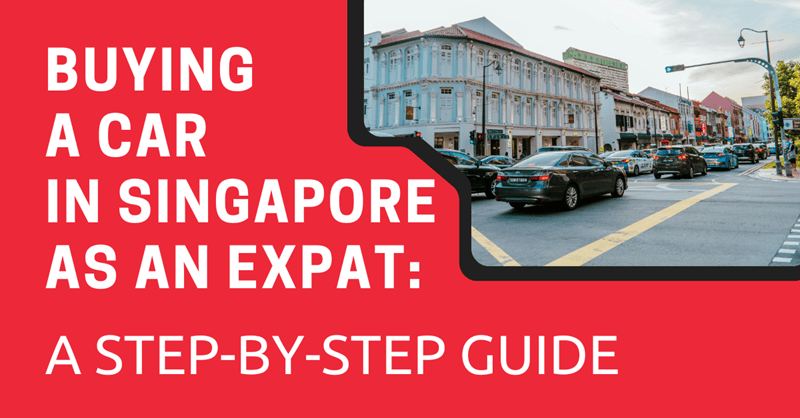
This article will take approximately 24 minutes to read. Don't have the time right now? No worries. Email the ad-free version of the article to yourself and read it later!
Thinking about getting a car in Singapore? Learn how COE works, what a car really costs, required documents, financing options, and tips for expats.
While Singapore is known to have a highly efficient public transportation system, some expats still find themselves considering getting a car for other practical reasons. Many of them are those with children who need to be sent to school and often get cars, as do those who live on the outskirts of the city centre or professionals with irregular hours.
A car will open up new doors for you and allow you quick access to work, weekend trips around the island to more hard-to-reach places, and even to venture north across the border for a Malaysian road trip without being restricted by the schedules of public transportation.
In this blog post, I’ll guide you on how to buy a car in Singapore as an expat. From our COE system, the taxes you should expect, financing options, and where to look for your car, I’ve done it all before several times and am happy to share some local insights.
Disclaimer: This article may include links to products or services offered by ExpatDen's partners, which give us commissions when you click on them. Although this may influence how they appear in the text, we only recommend solutions that we would use in your situation. Read more in our Advertising Disclosure.
Contents
- Key Takeaways
- Can Foreigners Buy Cars in Singapore
- The Certificate of Entitlement (COE)
- Costs of Buying a Car in Singapore
- Additional Registration Fees (ARF)
- Additional Taxes
- Where to Find Cars for Sale
- Financing a Car Purchase
- Getting Car Insurance
- Should I Buy a New Car or a Used Car?
- Registering Your Car
- Leasing
- Now, on to You
Key Takeaways
- Expats can buy a car in Singapore as long as they hold a valid pass and can show proof of residence for LTA registration.
- The COE is the biggest cost factor and often more expensive than the car itself. It must be bid for and is valid for 10 years.
- ARF and taxes add significantly to the total cost, making Singapore one of the most expensive places in the world to own a car.
- A typical S$100,000 car can end up costing over S$440,000 after COE, ARF, and taxes.
- Financing is widely available through banks, dealerships, or personal loans, each with different requirements and rates.
- Car insurance is mandatory, competitive, and varies by driver profile and car type.
- Leasing is a popular option for short-term expats who want predictable monthly costs without long-term commitment.
Can Foreigners Buy Cars in Singapore
If you are an expat in Singapore, the good news is that you can easily buy a car. You don’t have to be a citizen or a permanent resident, but you’ll need a valid pass like an Employment Pass, S Pass, Dependant’s Pass, or Student’s Pass to show your legal status in the country.
However, on the other hand, if you don’t have a valid pass (such as a tourist), you can’t buy a car here.
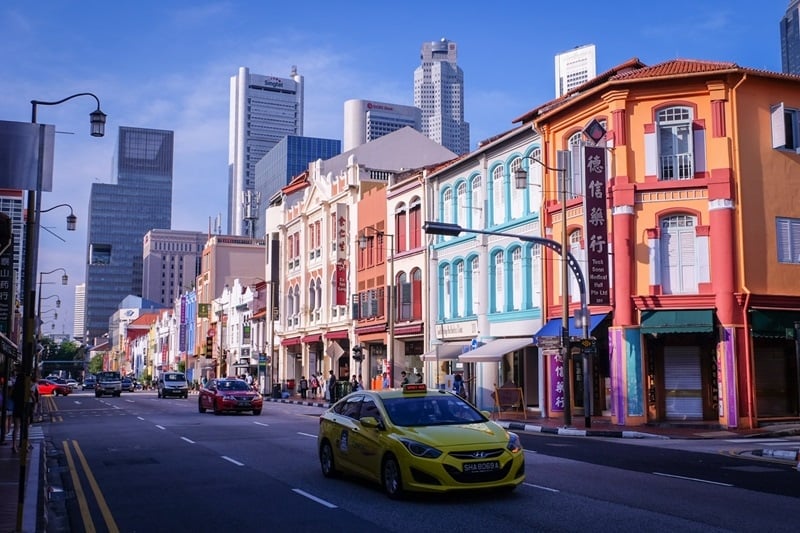
This is because you’ll need to give proof of your legal residence in Singapore to register your car under your name with the LTA (Land Transport Authority). The tenancy agreement, if you are renting, or a utility bill that shows your name and address, should do the trick.
The Certificate of Entitlement (COE)
The one thing that is unique to Singapore’s automobile industry is the need for a COE when you buy a car here. To mitigate Singapore’s limited land space and traffic congestion, the system was implemented over 30 years ago to limit the number of vehicles on the roads, as increasing road taxes wasn’t enough.
So, the COE system created a quota that capped the number of new vehicles allowed on the road each year.
How to Bid for the COE
You need to bid for the COE. The bidding is on a regular schedule and begins at 12 pm on the first and third Mondays of each month. The period lasts for three days and ends on Wednesday. If there is a public holiday involved, the auction will be pushed back.
DPS posted a schedule on their website.
Before each bidding exercise, the Land Transport Authority (LTA) will announce the vehicle quota for each category. For example, in November 2025, 1,306 COEs for Category A and 800 for Category B were available.
You can place your bid online as an individual on the DBS and POSB websites, or UOB and MayBank websites if you are buying as a company. You must have a bank account with these banks, and sufficient funds in your account for the bid deposit, which is S$10,000 and the administration fee which ranges from S$2 to S$10.
The COE system works on an open bidding system, which means you have to specify the reserve price, also known as the maximum price you are willing to pay. Once your reserve price has been submitted, the deposit and admin fee will be deducted, and you cannot withdraw your bid.
The system will then place a bid for you based on the highest unsuccessful bid + S$1. It will then automatically increase your bid by S$1 increments until your reserve price is met. Your bid will remain active as long as your reserve price is higher than the current COE price.
Once the quota is met, the final Current COE Price (CCP) becomes the price for that category, the exercise will be closed, and successful bidders will secure a COE. All winning bidders will pay the same price, regardless of how much they specified their reserve price to be. Unsuccessful bidders will receive their deposit back, but will not be refunded the admin fee.
Important: If you want to buy a vehicle under your name, you’ll have to submit your bid, as COEs are not transferable.
How Much Does the Certificate of Entitlement Cost?
Given Singapore’s tight control over traffic congestion and oversupply of vehicles, the COE will significantly add to your car’s purchase cost, and often is even more than the price of the car. For example, in November 2025, the price was S$110,002 for Category A, and S$115,001 for Category B.
The prices will fluctuate due to the number of vehicles in the quota each exercise, and the government determines this by carefully evaluating factors like the number of cars being deregistered, consumer confidence, the number of bidders, new vehicle orders, and the overall automobile market.
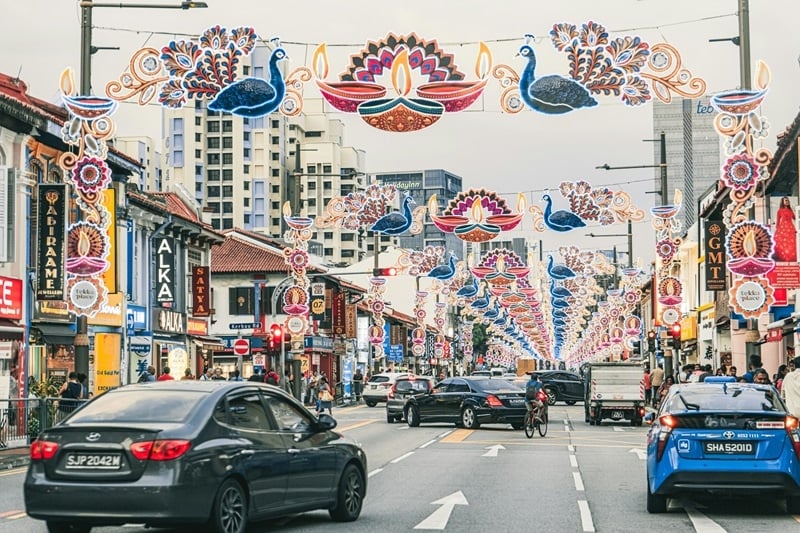
Tip: It is well-known that COE prices tend to dip during the festive periods or times of economic uncertainty, as these windows mean you might have less competition. When I bid for my Category A COE many years ago, I did it in February, which is historically when prices are at their lowest. That February, prices closed almost S$10,000 lower than the previous month.
Zero-Growth Policy
Note that as of this time, Singapore has a zero-growth policy for vehicles, which means that a COE is offered only when another expires. COEs are divided into several categories, but the most common ones are Category A, which includes cars up to 1,600cc and Category B, which includes cars above 1,600cc. Buses, commercial vehicles, and motorcycles will fall under other categories.
How Long Does the COE Last?
The COE is valid for 10 years. After that, you can either sell the car or bid for another COE, which can be valid for 5 or 10 years, depending on your needs.
Costs of Buying a Car in Singapore
Even without factoring in the significant COE costs, cars in Singapore can also cost a pretty penny. In fact, the cost of a car in Singapore is among the highest in the world.
Of course, it will vary depending on the type of car you want, whether you want to buy new or used, and sometimes, it can be just pure luck.
There are exceptions to every rule, but typically, continental brands like BMW, Mercedes, and Audi tend to cost more than Asian brands like Kia, Hyundai, Honda, and Toyota. A quick search on leading car websites like SGCarMart and Carro will show that most new cars will cost upwards of S$200,000, and used cars about five years old will cost between S$100,000 and S$150,000.
Additional Registration Fees (ARF)
The car’s open market value (OMV) and the COE prices aren’t the only things you need to factor in. You’ll also need to factor in the hefty ARF (Additional Registration Fees) and the taxes, all of which will add up.
The ARF plays a significant role in the total cost of owning a car. It is a tiered tax applied when you register a new car, based on the vehicle’s OMV. The higher the OMV, the more you’ll pay, with luxury cars facing significantly higher ARF due to steep percentage tiers. The ARF alone can be higher than the cost of the car, especially for luxury cars with high OMVs.
Here’s the tiered system of the ARF.
- First S$20,000: 100%
- Next S$20,001–S$40,000: 140%
- Next S$40,001–S$60,000: 190%
- Next S$60,001–S$80,000: 250%
- Above S$80,000: 320%
Here’s an example of the ARF calculation if you buy a car at S$100,000.
- First S$20,000: 100% x S$20,000= S$20,000
- Next S$20,000 (i.e. S$20,001 to S$40,000): 140% x S$20,000= S$28,000
- Next S$20,000 (i.e. S$40,001 to S$60,000): 190% x S$20,000= S$38,000
- Next S$20,000 (i.e. S$60,001 to S$80,000): 250% x S$20,000= S$50,000
- Above S$80,000: 320% x S$20,000= S$64,000
Based on a car with an OMV of S$100,000, the total ARF payable is S$200,000.
Additional Taxes
So far, you’ve got the COE price, the car’s purchase price, and the OMV. Now, you’ll also need to factor in excise duty and GST (Goods and Services Tax).
Excise duty is typically at 20% of the OMV, which means that’s an additional S$20,000 if you are purchasing a S$100,000 car. Then, add the 9% GST on top of both the OMV and excise duty together, which means 9% of S$120,000, making the GST S$10,800.
Total Cost of a Car in Singapore
With the cost of a car, COE, ARF, and Taxes combined, if you were buying a car at S$100,000, you’d need:
- Open Market Value (OMV): S$100,000
- COE: approximately S$110,000 (based on November 2025 prices)
- ARF: S$200,000
- Taxes: S$30,800
- Total: S$440,800
As you can see here, buying a car in Singapore isn’t for a faint of heart.
The Singapore Land Transport Authority published this detailed list of the cost of registering a new car in October 2025. It will give you the whole idea on the total cost of a car here.
Car Depreciation
Because of the COE, cars in Singapore depreciate quickly. For example, about 15 years ago, I bought a 5-year-old 2.4L Honda Civic for S$120,000, used it for the remaining five years of its COE left before selling it for close to nothing as its COE was expiring.
That means I lost almost S$24,000 per year from owning a car alone. And this doesn’t include the maintenance cost. So a car is indeed a hefty investment that will not give you much return.
Case Study: Another challenge in Singapore is driving. My expat friend in Singapore told me that driving here is quite stressful. While traffic and road condition is excellent, he is worry about breaking traffic laws here, which come with a hefty fee. For example, if you suddenly stoped at a zebra crossing, the fine is S$150.
Where to Find Cars for Sale
You can look for cars on car portals, in person at dealerships, or in classified ads. Here are a few places in each category that are popular with residents of Singapore, locals and expats alike.
Car Portals
Car portals in Singapore are online platforms specialising in used cars. They typically have a transparent buying process, list inspections, and have loads of details in their listings. As mentioned, two big ones are SGCarMart and Carro, but you can also look at Motorist Singapore and SGCarDeals.
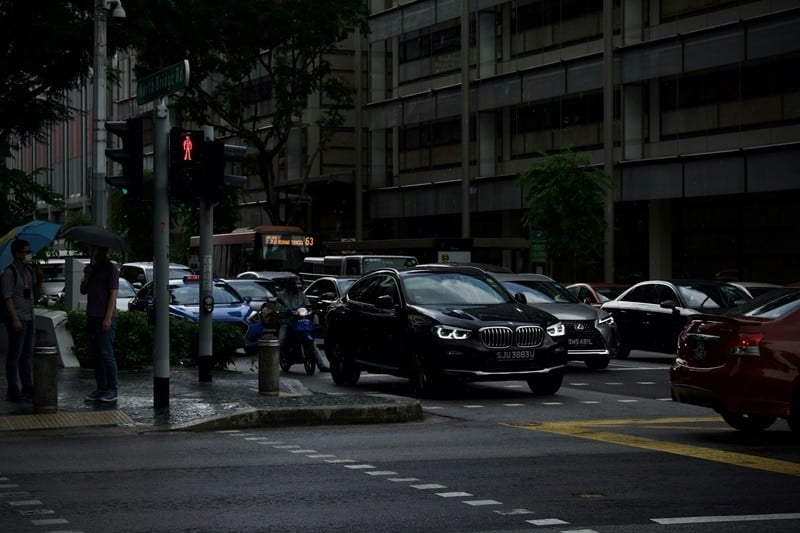
I personally like browsing car portals as both dealers and individuals post hundreds of cars for sale, and you can sift through them slowly if you aren’t in a hurry. However, if you are purchasing cars directly from an individual, I’d always make sure to get it checked out by a trusted mechanic first.
Dealerships
Singapore is home to many car dealerships that will typically have the newest models but might also offer used cars. A quick Google search will pull up countless listings, but three popular ones include Inchcape Certified Pre-Owned, Auto Selection SG, and CarTimes Group.
Classified Ads
STClassified, Carousell, and other large classified ads portals also have an automotive section where you can browse cars online. However, I personally feel that the selection is extremely limited, and you’ll find way more choices in the car portals that are specifically designed for buyers and sellers.
There are also facebook groups that sell cars. But options can be overwhelming.
Financing a Car Purchase
As you might already know, a car can be a significant investment, and you might not want, or have the means to pay the entire purchase amount. That’s when you’ll need to find financing. Here are some of the common ways to finance a car purchase.
Bank Loans
This is by far the most popular way, and this is my personal favourite. Major banks like the “big three” of DBS, UOB, and OCBC offer car loans at competitive interest rates and fixed repayment terms of up to seven years. You can get up to 60% or 70% of the car’s purchase price financed, and this depends on the vehicle’s Open-Market Value (OMV).
The car loan rates are the same whether you are a Citizen, PR, or valid pass holder. The only difference is that your minimum monthly income must be S$4,000 and above, compared to S$2,000 and above for Citizens and PRs.
Bank loans allow me to plan my finances accurately by providing a stable and predictable monthly repayment plan, and approval is easy to get. You’ll need an income statement, proof of your residency status, like your work pass, and credit checks. Interest rates will depend on your bank as well as other factors like the loan amount, the car’s age, and tenure, but they generally range from 2.78% to 3.50% per year.
Financing from Dealerships
If you are getting the car from a dealer, many dealerships offer their own financing packages that can be quicker and more flexible than a bank loan. The dealer will handle everything on the spot like the paperwork and approval. However, interest rates might be higher, so look for a good deal and other incentives like a reduced deposit, free servicing, and extended warranties.
Many expats go this route, as some banks might require extensive credit history in Singapore, which new expats will not have. You’ll need your passport and employment pass, both with more than 6 months validity.
Do your homework and compare dealership and bank interest rates, as some packages might contain hidden fees.
Personal Loans
Personal loans typically have the highest interest rate, but you can borrow the full amount and can purchase a car immediately without coughing up with initial payment. Some expats choose personal loans to finance their car purchase, especially if they prefer not to tie the loan directly to the vehicle.
They also don’t have to follow MAS rules on maximum financing, meaning you could technically borrow the full amount if you qualify. Just make sure the total repayment amount fits comfortably within your budget, as interest rates can be significantly higher than at a bank or dealership.
Getting Car Insurance
Before you register your car, you’ll need to get car insurance. The good news is that the market is highly competitive, and there are many insurers out there that offer perks like no-claim discounts (NCD) and discounts off premiums.
The cost will vary according to the type of insurance you want, your age, driving history, type of car, and history, but the costs generally range from S$700 to S$1,000 a year.
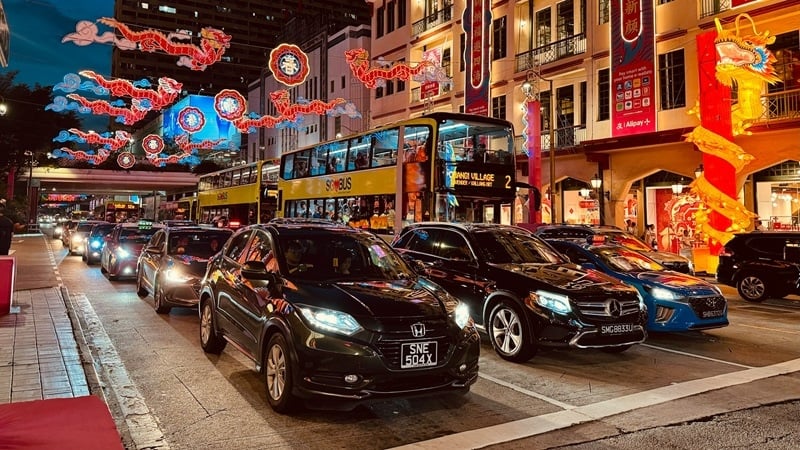
I’d recommend Comprehensive Insurance, which not only covers third-party liability, but also covers your car, fire, and theft. As you already know, buying cars in Singapore can come with a hefty price tag, so it would be best to protect your investment. If you want to save on insurance, you can also get Third-Party Only (TPO) or Third-Party, Fire and Theft (TPFT) policies. These two types are usually chosen if you have an older vehicle that won’t be worth the cost of repairs, but this is rare, especially in Singapore.
It doesn’t apply to me since the Singapore government has my driving record, but if you have proof of no-claim discounts or any way to show an excellent driving record in your home country, this could also help you reduce your insurance costs.
Shopping around for your ideal policy is easy, as a quick Google search should yield numerous results that offer online quotes once you key in your details. Look at the premiums, excess amounts, and claim procedures. Some insurers popular with expats include MSIG, SingLife, Allianz, and ECIS Private Motor, but I personally go with AIG Complete as I also have other policies with them.
Should I Buy a New Car or a Used Car?
The price of your car purchase can vary greatly depending on whether you want a new car or a used one. New cars offer peace of mind as everything is still under warranty if you get it from the dealership, and you’ll get the latest models with the newest tech and safety features. You also won’t have to spend much on maintenance, as everything should be working the way it was meant to.
The biggest downside, of course, is price. Add the price of a new car to the COE price, taxes, and other costs, and it can be a hefty investment. New cars are also extremely expensive in Singapore, and the depreciation costs are steep.
I personally prefer buying cars that are a few years old. The OMV (Open-Market Value) is way more reasonable because someone else already paid top dollar to drive a brand-new car out of the gate. You can get a higher-end model for approximately the same cost if you look for something about three to four years old.
The problem with used cars is that you won’t know the history, and not everyone is mechanically inclined. I will always get a potential purchase checked out by a trusted mechanic prior to purchase, and carefully inspect all the service history documents.
At the end of the day, new cars will suit you if you value reliability and don’t mind paying a premium, while used cars are ideal if you want better cost efficiency and don’t mind the potential maintenance costs.
Registering Your Car
Once you’ve got the COE and insurance, you’ve got to register your car with the Land Transport Authority (LTA). This is a relatively simple step, but you’ll need to consolidate some documents for submission. You can either register your car through a dealer or self-register at LTA.
Register though a Dealer
First, you’ll need to give consent to your dealer to proceed with registration. You can do this on your SingPass account. If you don’t already have an account, you can apply for one with your S Pass, Employment Pass, or any other valid pass that proves Singapore residency. In case you didn’t know, SingPass gives you access to all the government services like filing taxes, healthcare, and vehicle registration.
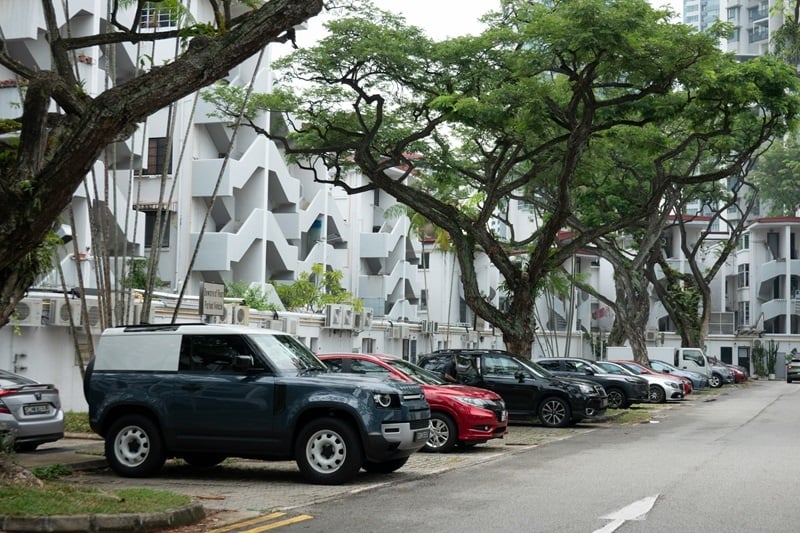
After which, your dealer should take care of the whole registration procedure.
Self-Register at LTA
If you want to self-register your car, here’s a step-by-step guide.
Step 1: Apply for a Vehicle Approval Code (VAC) through VITAS (Vehicle Inspection & Type Approval Service). Again, you can log in with your SingPass, and the fee is S$274.68.
Step 2: Make an appointment and then head to the LTA Customer Service Centre to submit all the required documents, like proof of insurance coverage and a temporary COE.
Step 3: At LTA, pay the S$350 registration fee and S$28.34 processing fee by NETS or PayNow. Once approved, your car is registered and assigned a license plate number.
Step 4: Collect your license plates immediately and attach them to your car within three days.
Leasing
If the costs of buying a car in Singapore are too much of a financial commitment, you can also look at leasing a car, which is a popular choice for expats who are in the country for only a short time. That way, you know upfront how much you will spend monthly and can plan your finances accordingly.
Leasing a car in Singapore is relatively straightforward, and prices vary significantly based on the type of car. For example, entry-level models like smaller sedans can cost about S$1,650 a month, while mid-range SUVs can cost at least S$2,100. Luxury cars come at a premium, of course, with brands like Mercedes and Audi starting from S$2,850.
Leases should cover extras like regular servicing, insurance, and road tax, making it convenient for expats in Singapore who want the flexibility that comes with car ownership without the hefty financial commitment, especially if they aren’t sure how long they will stay in Singapore. In addition, leasing also gives you the option to upgrade or downgrade your car as your needs and preferences change. For example, you might opt for an SUV model instead of a small sedan if your family grows.
In addition, there are also lease-to-purchase arrangements, where you begin by leasing a vehicle for a certain period, usually about three to five years, during which you’ll make monthly payments. At the end of the lease term, you then get the option to take ownership of the car by paying the remaining value. This option suits expats who intend to stay in Singapore for a fixed period but are unsure whether they will extend their stay.
I personally wouldn’t consider leasing a car, as I have compared the monthly leasing costs against the cost of the purchase and subsequent depreciation of the car’s OMV, and found it far cheaper to purchase.
At the end of the day, it’s entirely up to you whether you want the larger financial commitment but longer-term savings to purchase, or the flexibility but higher costs of leasing.
Now, on to You
Singapore is known for being one of the most expensive countries to own a car, and rightfully so. From the COE that can cost more than the car, to the ARF that likely DOES cost more than the car, owning a car is a significant financial investment.
While the public transportation system is extremely efficient, nothing beats having your own set of wheels, enabling you to reach further areas in different neighborhoods and travel at all hours of the day. I found that having a car allowed me unbeatable convenience because I was constantly lugging around loads of adventure gear like kayaks, paddles, climbing equipment, and diving equipment, which would have been cumbersome and stressful when taking public transport.
Once you do decide to go forward with car ownership, the process is fairly straightforward. Take the time to research your shortlisted car models, and do some homework when acquiring your insurance, and you will find something that suits your lifestyle and financial needs. Good luck!







